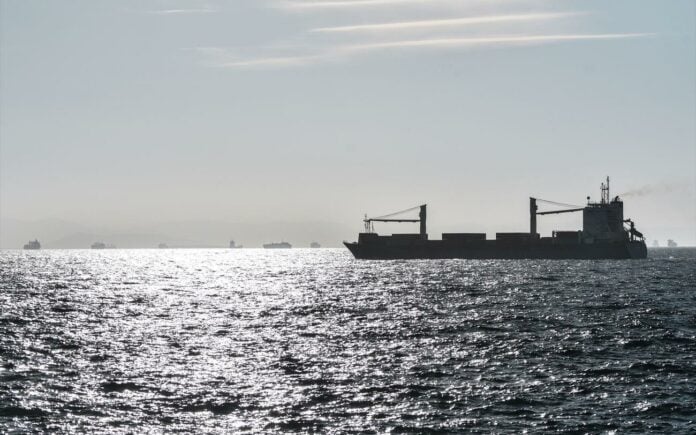Ocean-going shipping has witnessed tremendous strides in technological advances over the recent decades, transforming an all-important sector once considered a “blue-collar” and “old guard” domain into an increasingly advanced form of transportation, one that employs every possible breakthrough to reduce costs, increase safety and ameliorate environmental impact.
One possible innovation, which would revolutionize shipping, particularly on a littoral and sea river setting, is a distinctly 21th century prospect: Unmanned commercial vessels.
Alexandros XM Ntovas details this prospect in a text below:
The deployment of unmanned vessels in commercial shipping constitutes a fascinating prospect that will certainly materialise in the future; with a question, however, as to exactly when, on what particular conditions and its extent in order to afford fleet-wide competitive advantage.
The concept of unmanned navigation at the moment envisages vessels being remotely controlled and monitored from the shore, that the advancing knowledge and equipment will eventually render into entirely self-governing units. Sophisticated and reliable technology that has been developed mainly with military and scientific operations of small vessels in mind already exists, and a number of well-funded technical projects are in place for transferring, testing and validating such technology for the purpose of large-scale commercial application.
Gradually increased automation of commercial navigation will significantly reduce operational costs, while increasing traditional safety, assuring absolute environmental regulation compliance, and achieving optimum levels of ship efficiency. However, as the emphasis has been placed upon the technical feasibility of deploying unmanned commercial vessels, many other regulatory and legislative aspects remain largely obscure for the time being.
Nevertheless, in parallel with the advancing technology, elements of risk assessment and management, industry self-regulation initiatives within national jurisdictions, as well as policy frames of reference, are being gradually examined. A wide range of non-governmental agencies, State-sponsored organisations, and classification societies have been working towards the first drafts of regulatory codes, best management practices, applicable industry standards and classification rules aiming at the safe operation of such vessels.
At the level of international law, nevertheless, the developments run much slower with the IMO not having included yet the topic of unmanned vessels in the agenda of its committees. Still, a plethora of other difficult issues lie ahead of unmanned vessels in commercial shipping.
For instance, coastal State requirements for compulsory pilotage, the availability of dedicated facilities in ports of major trade interest, equivalent certification for shore controllers and technology developers against international rules and standards, product liability for software used in such advanced technology and vicarious liability regarding their navigation, engine maintenance in distant and prolonged voyages, their inevitable susceptibility to evolving cyber security threats, inspections at sea and in foreign ports, the suitability of such vessels for particular types of charters and cargo, the need for flexibility in the current maritime market, as well as the their impact on maritime labour force and on the human refinement of the art of navigation itself, are only but a few questions in a very long list beyond the single matter of safe navigation and improved capabilities to avoid collisions.
As ships reflect an investment and not merely a technical project, ship-owners and charterers will need to be provided with convincing answers to such questions. Nevertheless, the emergence of unmanned vessels surely reflects the next fundamental innovation in the shipping industry with a question as to ‘when’, not anymore of ‘if’. It cannot be precluded that when all the required conditions are met, a significant part of international seaborne trade, may swift in the context of a multimodal global transport to fixed sea routes for point-to-point voyages by ‘robotic ships’.
Dr Alexandros XM Ntovas lectures in international shipping law, at the Centre for Commercial Law Studies of the Queen Mary University of London School of Law, one of the UK’s leading research institutions with an equally enviable reputation for teaching excellence. The Centre specialises with a world-wide acclaimed reputation in the knowledge and skills in commercial law that can be placed at the service of governments, public bodies, overseas institutions, the legal profession, industry and commerce.
Honouring the long established Greek tradition in shipping, QMUL created a new LLM in International Shipping Law (Piraeus), following the success of the London-based LLM programme, in cooperation with the Hellenic Management Centre (HMC). This programme is delivered by the CCLS academic staff at the prestigious facilities of the HMC in Piraeus, one of the major international shipping centres in the world, and is aimed at lawyers and professionals with relevant work experience and an academic background and is taught in six intensive blocks throughout two academic semesters, so that it can be fitted in with their other professional commitments.
On the matter of unmanned maritime vessels, Dr Ntovas has spoken to a number of high-impact industry players, including the Nautical Institute of London and the European Association of Marine Pilots in Antwerp, and also at the ‘Autonomous Ship Technology Symposium 2016’ in Amsterdam on 21–3 June, and at the anniversary conference of the International Institute of Marine Surveying in London, on 1 September.”














